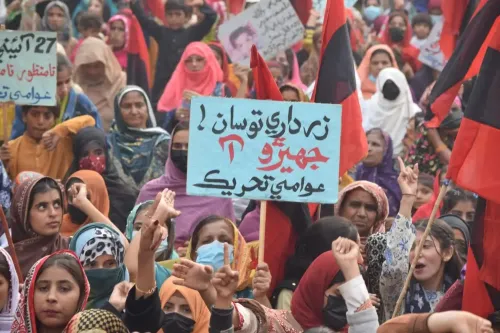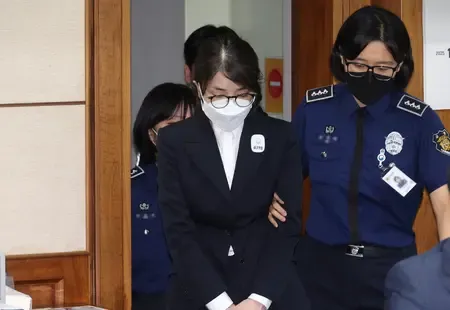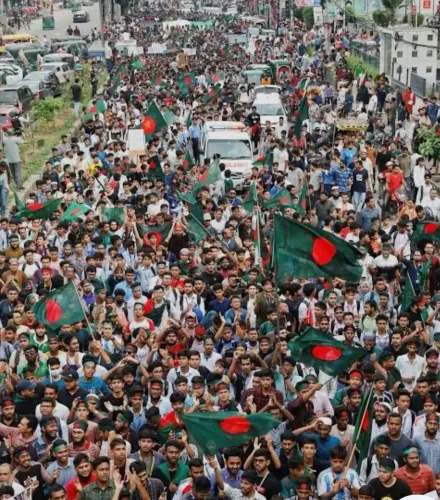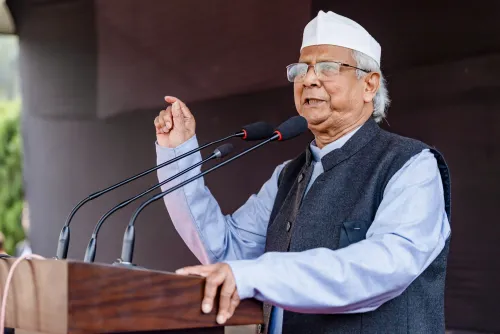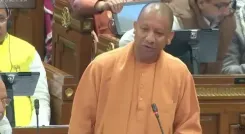In Response to Islamic Representation Talks, India and G4 Dismiss Religious Seat Allocation at UNSC
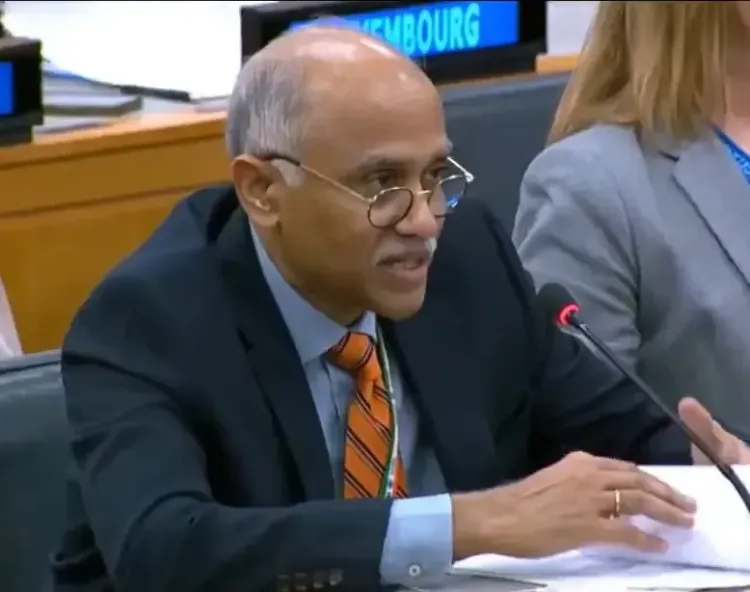
Synopsis
Key Takeaways
- India and G4 oppose religious seat allocation in UNSC reforms.
- Proposals for religious representation contradict UN practices.
- Regional representation remains a priority for Council reforms.
- G4 supports expanding the permanent membership of the Council.
- Debate continues over Islamic representation in global governance.
United Nations, April 16 (NationPress) In light of ongoing discussions regarding Islamic representation, India along with its fellow G4 members has firmly dismissed proposals aimed at assigning seats based on religious affiliations within a reformed Security Council. India’s Permanent Representative P Harish stated on Tuesday, while representing the G4, that "proposals to incorporate new parameters, such as religious affiliation, contradict established UN practices."
While he refrained from mentioning Turkiye or its President Recep Tayyip Erdogan, who suggested last month that an Islamic nation should hold a permanent seat on the Council, he also did not refer to Pakistan or the Organisation of Islamic Cooperation (OIC), which proposed that all categories of Council membership should reflect the representation of the "Islamic Ummah."
Harish emphasized that the introduction of a religious component would "complicate an already challenging dialogue" surrounding Council reforms. He addressed a meeting of the Intergovernmental Negotiations (IGN) on Council reforms on behalf of the G4, which includes Brazil, Germany, and Japan.
Furthermore, he reiterated his stance as India’s representative, highlighting that it would undermine the principle of regional representation. "Introducing religious criteria as a basis for representation in a reformed Council is entirely contrary to the accepted principle of regional representation in the United Nations," he affirmed.
Erdogan, who seeks to position himself as the leader of the Muslim world, stated last month during an iftar gathering for diplomats, "It is not merely a necessity but an obligation to have an Islamic country with veto power in the UN Security Council."
The G4 nations, described as a "progressive, constructive, and reform-oriented group," are advocating for an expansion of the Council’s permanent membership and mutually support each other in these endeavors.
However, Harish clarified that the G4, as an advocacy group aiming for meaningful reforms, refrains from making "specific recommendations" regarding potential new permanent members and defers to the General Assembly for such decisions.
"The G4 once again emphasizes that the decision regarding which member states should become permanent members of a reformed Council must be made democratically by the General Assembly," he stressed.
Harish detailed the G4's position regarding the size of an expanded Council and the need for regional representation.
According to the G4 proposal, the Council’s total membership would increase from 15 to 25 or 26, with permanent members rising from five to 11, while the non-permanent seats would increase from ten to 14 or 15. Of the six new permanent seats, two would be allocated to Africa and Asia Pacific regions, while one each would be designated for Latin America and Caribbean, as well as Western Europe and others.
In terms of the new non-permanent seats, one would be assigned to Asia Pacific, Latin America and Caribbean, and Eastern Europe, while Africa would receive one or two depending on the final decision regarding the size of the category.
Although Harish did not name the United for Consensus (UfC) group, led by Italy and including Pakistan, which opposes the addition of permanent members and hinders progress in the reform process, he directed remarks towards them while speaking in his national capacity.
"Those resisting text-based negotiations do not genuinely seek progress on reforms," he stated. "The argument that an expanded and reformed Security Council would not be efficient serves to stall real reform efforts," he added.
"A reformed Council, equipped with appropriate working methods and accountability mechanisms, would be able to operate effectively and address pressing global challenges."
While Erdogan has voiced support for expanding the Council's permanent membership to include Islamic representation, Pakistan stands against adding new permanent members.
However, while representing the OIC last year under pressure, Islamabad’s former Permanent Representative Munir Akram stated that the "Islamic Ummah" would not endorse any proposal lacking adequate representation in "any category of membership."
Analyzing the current permanent membership reveals one nominally Communist nation, China, and four predominantly Christian countries—further dissecting this, two (the United States and Britain) are Protestant, while France is Catholic, and Russia is Orthodox.
Prior to the Soviet Union's dissolution when the seat transitioned to Russia, two were Communist nations, reflecting an atheistic ideology. In Taiwan, which originally held the Chinese seat, the majority comprised Buddhists and Taoists.


